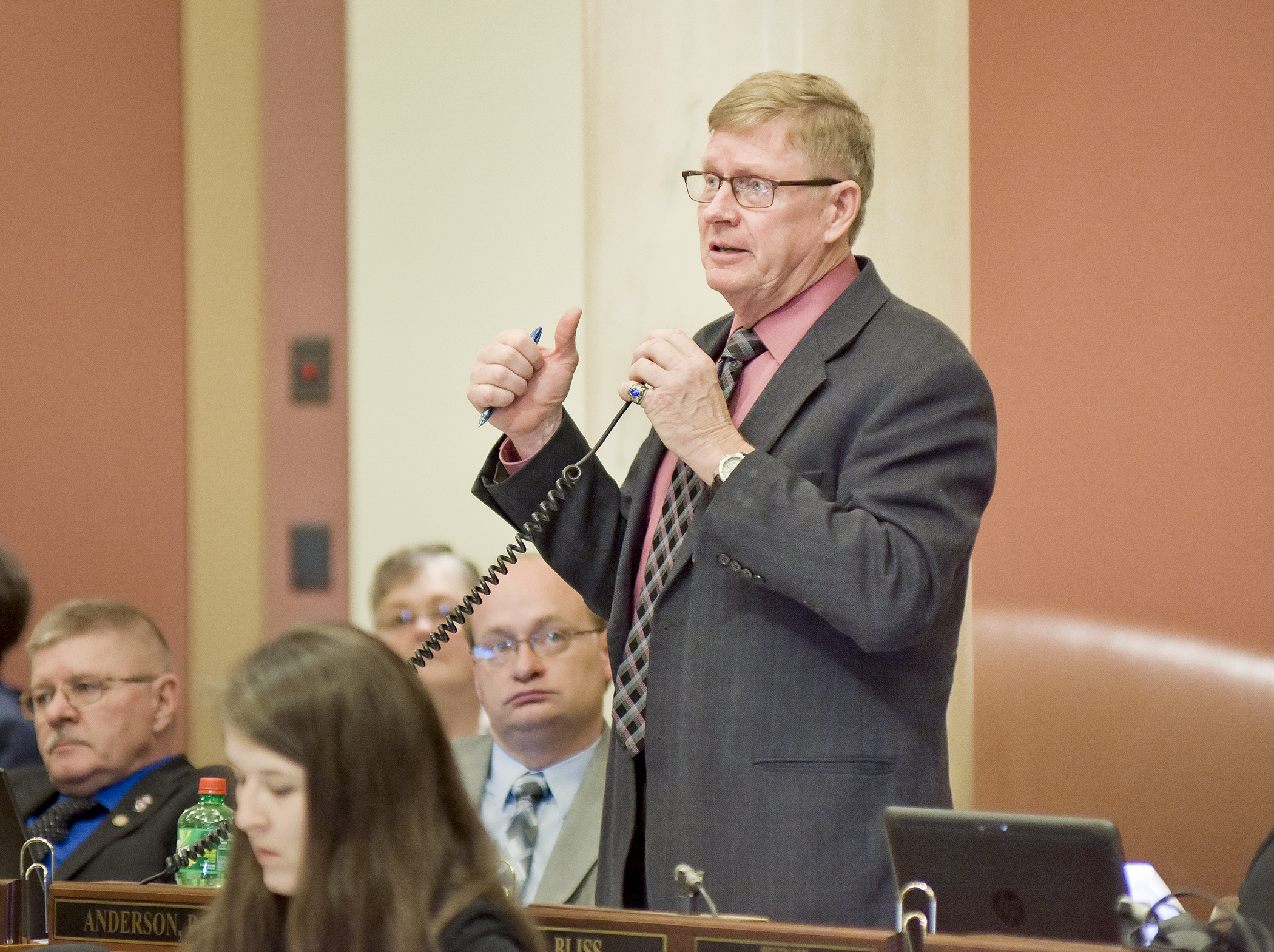From home cooks to fences and feedlots, omnibus ag policy bill passes House

The financial threshold farmers must meet to participate in the state’s debt mediation program may increase for the first time in more than 30 years after the House passed the omnibus agriculture policy bill 109-25 Wednesday.
Sponsored by Rep. Paul Anderson (R-Starbuck), HF1717 contains several dozen provisions, including a $10,000 increase in the debt limit – from $5,000 to $15,000 – for Farmer-Lender Mediation.
The program began in 1986 as a process farmers could use to renegotiate or restructure debts, and allow a cooling-off period while exploring solutions. The $5,000 debt limit was set at that time and has not changed since.
Anderson said a lot of work has been done over the last couple of years to study the program and the increase was needed to bring it up to date.
“Inflation has really taken place on the farm scene, and what we’re really trying to do is bring the numbers up to the 21st century,” Anderson said.
Anderson also successfully offered an amendment that would require the Department of Agriculture to report to the Legislature every five years on what the minimum eligible debt amount would be, if adjusted using the United States Department of Agriculture’s Index of the Cost of Production.
This would provide for future debt-limit corrections.
The bill now travels to the Senate where Sen. Bill Weber (R-Luverne) is the sponsor.
Amendments to the bill
Several other amendments were also adopted during debate on the bill.
The most contentious was one that would expand nuisance liability protections for feedlot operations to include facilities of all sizes. Advocates said the measure is needed to guard against nuisance lawsuits that can hurt agricultural producers, while opponents argued it would remove valuable protections for neighbors troubled by problems such as odor.
Rep. Tony Cornish (R-Vernon Center) characterized opposition to the amendment as “an attack on agriculture;” while Rep. John Lesch (DFL-St. Paul) said the provision would take away “the last line of defense” people have against these issues.
WATCH House Floor debate and passage of the omnibus agriculture policy bill
An amendment by Rep. Jim Newberger (R-Becker) was also adopted. It would modify the rules governing cottage food producers – home cooks and gardeners who sell their products to the public – to allow them to also donate their products to charities and other organizations trying to raise money.
Rep. Jim Knoblach (R-St. Cloud) offered a successful amendment that would change existing fence law.
Under current law, when two parcels of land over 20 acres are next to one another, and one of the landowners decides to put up a fence, the other landowner is required to pay half of the cost.
The amendment removes that cost-share requirement unless there are livestock on each side of the fence.
HF1717, as amended, also includes measures that would:
- provide new definitions for pesticide use and a registration exception for certain experimental pesticides;
- increase the maximum net worth for applicants to several of the Rural Finance Authority’s loan programs;
- make several modifications to the Agricultural Utilization Research Institute’s structure and operations;
- add a registration requirement for pet food sold in packages of 10 pounds or less;
- reduce the amount of information wholesale produce dealers must submit to the Agriculture Department when requesting a license;
- extend the expiration date of the Agricultural Fertilizer Research and Education Council and its grant program;
- authorize the Department of Agriculture to regulate seed potatoes grown in a laboratory;
- make technical changes to commercial feed law; and
- extend the Dairy Research, Teaching, and Consumer Education Authority’s expiration date to 2020 and eliminate a requirement the authority acquire a facility for dairy research, teaching and consumer education.
Related Articles
Search Session Daily
Advanced Search OptionsPriority Dailies
Stable budget outlook projects $3.7 billion surplus now, no deficit in next biennium
By Lisa Kaczke The projected surplus for Fiscal Years 2026-27 is now higher than it was in the November estimate, and no deficit is projected for the next biennium.
“Minnesota’s budge...
The projected surplus for Fiscal Years 2026-27 is now higher than it was in the November estimate, and no deficit is projected for the next biennium.
“Minnesota’s budge...
Legislative leaders set 2026 committee deadlines
By Lisa Kaczke Legislative leaders on Tuesday officially set the timeline for getting bills through the committee process during the upcoming 2026 session.
Here are the three deadlines for...
Legislative leaders on Tuesday officially set the timeline for getting bills through the committee process during the upcoming 2026 session.
Here are the three deadlines for...